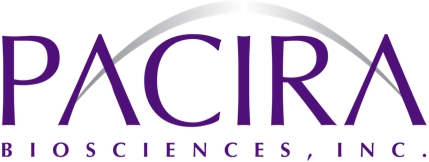Patients and their parents willing to pay more for an opioid alternative following wisdom tooth extraction to avoid side effects and risk of addiction
PARSIPPANY, N.J., May 03, 2017 (GLOBE NEWSWIRE) -- According to a new national survey of over 1,500 oral surgery patients or their parents, more than seven in 10 respondents indicated they would opt for a non-opioid medication to treat postsurgical pain from third molar (wisdom tooth) extraction if given the choice. Approximately 80 percent indicated they would do so even if the medication was associated with additional cost. Despite the desire for an alternative, 70 percent of respondents reported an opioid was prescribed post-extraction, illustrating a clear divide between patient preference and the current standard of care. These findings are being presented at the 2017 Annual Meeting of the American College of Oral and Maxillofacial Surgeons (ACOMS).
“It’s evident that opioids continue to be the cornerstone of pain management following third molar extraction, despite their association with unwanted side effects and the risk for abuse or addiction,” said Pedro Franco, DDS, one of the study investigators. “This research shows us that an overwhelming majority of patients—many of whom are likely exposed to opioids for the first time following an oral surgery procedure—would prefer a non-opioid option. I am hopeful that these findings will encourage clinicians and patients alike to be more proactive in their pain management discussions, especially as it relates to the availability of opioid alternatives.”
The research, which was conducted by Nielsen’s Harris Poll Online using a nationwide electronic survey, highlights an opportunity to bridge the gap in surgeon/patient communication. At least 90 percent of patients and parents indicated wanting the opportunity to discuss a personal pain management plan with their surgeon in advance of their procedure, and many (up to 71 percent) reported feeling concerned about the potential for opioid-related adverse effects. Despite this, only approximately 40 percent actually discussed these concerns with their surgeon.
According to the survey data, nearly 90 percent of patients who took opioids experienced adverse side effects—ranging from nausea and vomiting to confusion or feeling “spaced out”—that impaired their daily activities. Respondents indicated being unable to drive, go to school or work, exercise or participate in sports for several days.
“These data clearly show us both the ubiquitous nature of opioid use and the alarming rate of patient exposure to their adverse effects,” said Dave Stack, CEO and chairman of Pacira. “The ability to utilize non-opioid medications to treat postsurgical pain and reduce or avoid opioid requirements—especially in this particularly vulnerable patient population—is integral to mitigating the unintended consequences associated with their use.”
About the Survey
An anonymous, electronic, cross-sectional U.S. survey using Nielsen’s Harris Poll Online was conducted between June 23 and July 8, 2016. Two groups were surveyed: adults 18 years or older who underwent third molar extraction in the past year, and parents of patients ages 18-24 who had surgery in the past year or expected to in the coming 12 months. The sample included 1,000 patients, and 251 parents of patients who had surgery and 251 parents of patients expecting to have surgery within a year. The research was funded by Pacira Pharmaceuticals, Inc.
About Pacira
Pacira Pharmaceuticals, Inc. (NASDAQ:PCRX) is a specialty pharmaceutical company focused on the clinical and commercial development of new products that meet the needs of acute care practitioners and their patients. The company’s flagship product, EXPAREL® (bupivacaine liposome injectable suspension), indicated for single-dose infiltration into the surgical site to produce postsurgical analgesia, was commercially launched in the United States in April 2012. EXPAREL and two other products have successfully utilized DepoFoam®, a unique and proprietary product delivery technology that encapsulates drugs without altering their molecular structure, and releases them over a desired period of time. Additional information about Pacira is available at www.pacira.com.
Company Contact:
Pacira Pharmaceuticals, Inc.Susan Mesco, (973) 451-4030
susan.mesco@pacira.com
Media Contact:
Coyne Public Relations
Alyssa Schneider, (973) 588-2270
aschneider@coynepr.com

Pacira Pharmaceuticals, Inc

